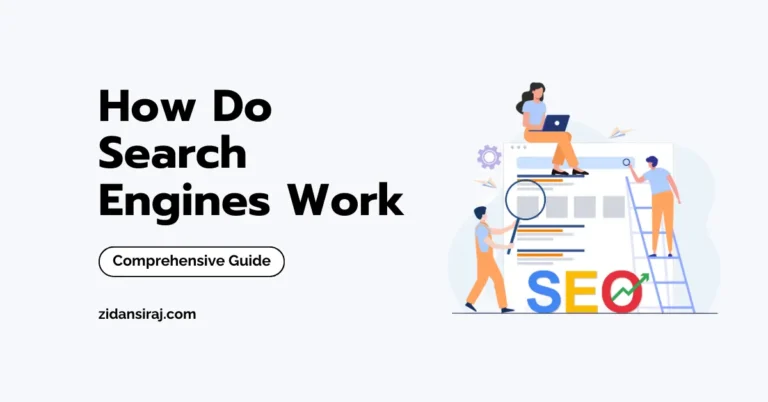As an SEO professional, I can assure you that keyword research is one of the most important aspects of SEO.
In this article, I will take you through the process of keyword research in SEO, including:
- Why it’s important
- How to use keyword research tools
- Understanding user intent
- Finding the right keywords for your website
- Analyzing keyword competition
- The importance of long-tail keywords
- Keyword mapping and optimization
- Keyword research best practices for SEO
Introduction to Keyword Research in SEO
Keyword research is the process of finding out what words and phrases people use to look for information on the internet.
In SEO, keyword research is the foundation of any successful optimization strategy.
By understanding what users are searching for, you can optimize your website’s content to target those specific keywords and phrases. This will make it easier for search engines to understand what the website is about and rank it.
Why is Keyword Research Important for SEO?
Keyword research is important for SEO because it helps you understand what your target audience is looking for.
Keyword research can also help you uncover new opportunities for content creation and link building.
By identifying keywords that have high volume and lower competition, you will be able to get more traffic to your website.
You can also identify websites that are ranking for those keywords and reach out to them to request a backlink.
When conducting keyword research in SEO, it’s important to consider how to optimize your on-page elements for maximum impact. To learn more about which on-page element carries the most weight for SEO, check out my related blog on the topic.
Keyword Research Tools for SEO
There are many keyword research tools available, ranging from free tools like Google’s Keyword Planner to paid tools like Ahrefs and SEMrush.
These tools can help you get insights about keyword volume, competition, and related keywords.
When selecting a keyword research tool, it’s important to consider your specific needs and budget.
Some tools are better suited for specific industries or types of websites, while others may offer more comprehensive features that are useful for larger organizations.
Understanding User Intent in Keyword Research
Understanding user intent is a critical component of keyword research in SEO. User intent is the reason someone searches for a particular keyword or phrase.
There are mainly four kinds of user intent:
- Informational intent: This is when someone wants to learn more about a certain subject.
- Navigational intent: This is when someone is looking for a particular website or web page.
- Commercial intent: This is when someone is looking to buy a product or service.
- Transactional intent: This is when someone is ready to make a purchase.
By understanding the intent behind a keyword, you can tailor your content to match that intent, whether it’s by providing informational content, creating a landing page for a specific product or service, or optimizing your website for local search.
How to Identify the Ideal Keywords for Your Website?
Finding the right keywords for your website involves a combination of understanding your business and target audience, conducting keyword research, and analyzing keyword competition.
One way to identify potential keywords is to brainstorm a list of words and phrases that your target audience might use when searching for your products or services.
You can also use keyword research tools to identify related keywords and phrases.
Once you have a list of potential keywords, you should look at their competition to see which ones are most likely to help you rank in search engine results pages (SERPs).
Analyzing Keyword Competition
Analyzing keyword competition is an important part of keyword research in SEO.
By understanding the competitiveness of a particular keyword, you can determine whether it’s worth targeting. It will also help you understand how much effort you will need to put in to rank for that keyword.
There are several factors to consider when analyzing keyword competition, including the number of websites that are ranking for that keyword, the quality of those websites, and the type of content that is ranking.
Use tools like Ahrefs or SEMrush to analyze keyword competition and identify opportunities.
When analyzing keyword competition, it’s important to remember that high competition doesn’t mean that a keyword is not worth targeting.
If a keyword has a high search volume and is relevant to your business, it may still be worth targeting even if it will need more effort to rank.
Long-Tail Keywords and their Importance in SEO
Long-tail keywords are phrases that are longer and more specific that people use to look for information on the Internet.
They may have a lower search volume than short-tail keywords. But they are often easier to rank for because they have less competition.
Long-tail keywords are important in SEO because they allow you to target more specific audiences that are more likely to convert into customers.
They also give you opportunities to create content and build links that your competitors might miss if they only go after more general keywords.
When choosing long-tail keywords, it’s important to consider their relevance to your business and their search volume.
While they may have less competition, they also may have a lower search volume, which means that they may not drive as much traffic to your website.
Keyword Mapping and Optimization
Keyword mapping is the process of placing keywords on certain pages of your website based on how relevant they are to the content of that page.
By assigning keywords to specific pages, you can make sure that your website’s content is optimized for those keywords and that search engines know what each page is about.
It’s important to use your keywords in your content strategically and naturally.
This means that you should put them in your content in a way that makes sense and helps your audience, instead of stuffing them in.
You should also optimize other parts of your website, like meta descriptions and title tags, to include your target keywords and make it clear to search engines what your website is about.
Keyword Research Best Practices for SEO
When conducting keyword research for SEO, there are several best practices that you should follow. These include:
- Conducting thorough research: Take the time to research your target audience and competition to identify the keywords that are most relevant and valuable to your business.
- Focusing on relevancy: Choose keywords that are highly relevant to your business.
- Balancing search volume and competition: Select keywords that have a high search volume and low competition to maximize your chances of ranking in SERPs.
- Incorporating keywords naturally: Use keywords strategically and naturally in your website’s content to provide value to your audience. Also, avoid keyword stuffing.
- Analyzing and adjusting: Analyze your website’s keyword performance and adjust your strategy as needed to improve your rankings.
Conclusion
Keyword research is a critical element of any successful SEO strategy.
Focus on relevancy, find a good balance between search volume and competition, use keywords naturally, and keep analyzing and changing your strategy to get the best results.
To make sure you’re optimizing your website correctly, be sure to check out my On-Page SEO Checklist.






